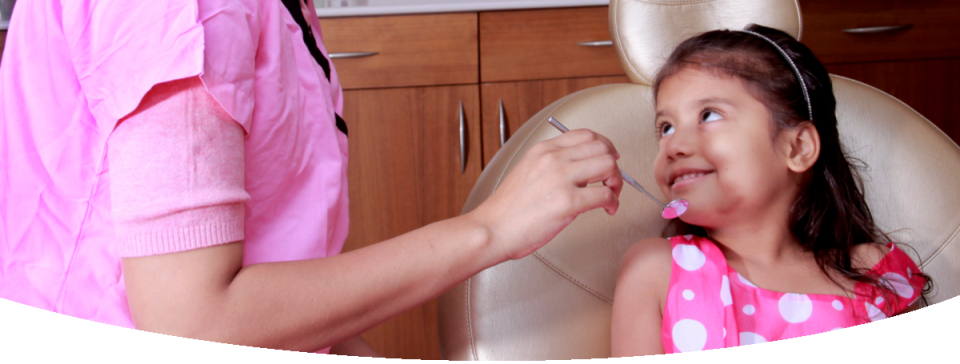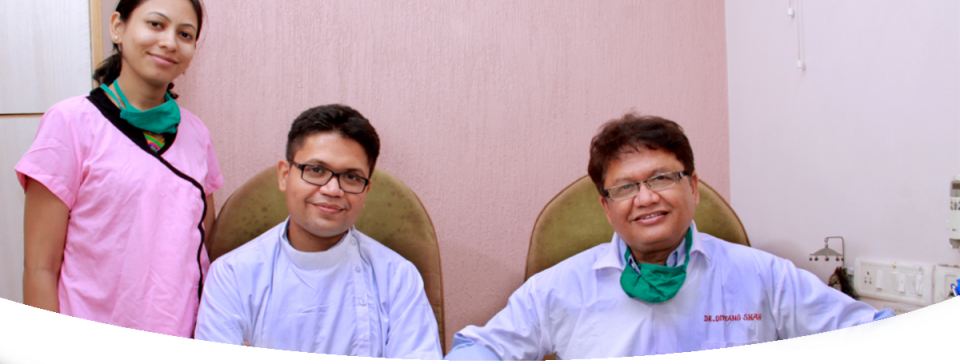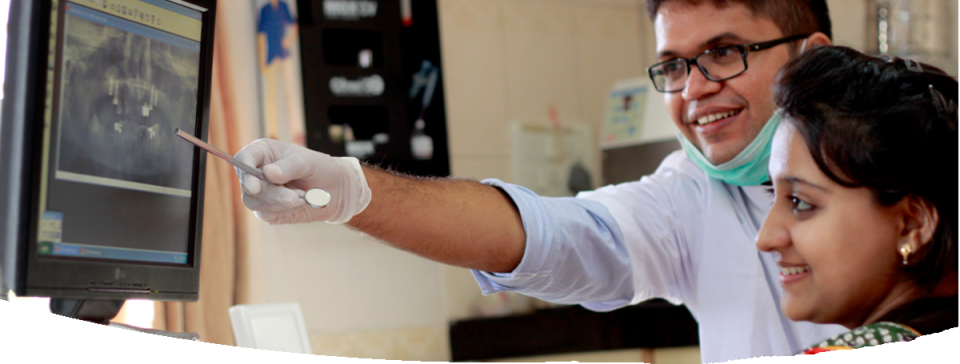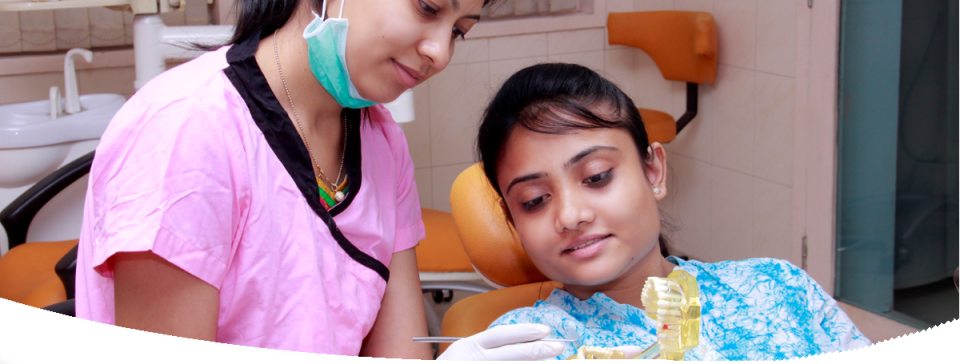Please leave all your worries behind, parents. Because dentistry is fun for children at Bhavna Dental Clinic. Our caring and empathetic staff take care of your children with great love and prudence. Routine dental treatments like RCT, fillings, fluoride treatments are performed with great diligence at our clinic. However, we have introduced some treatments specific for children.
Special High Fluoride Child Fillings
Fluoride is a naturally occurring element that strengthens teeth. This can help to prevent tooth decay. Experts say the best way to prevent tooth decay is to use several sources of fluoride.
Ionomers with extra high fluorides are available at Bhavna Dental Clinic, which help prevent further decay.
Children (Pedo) Metal and Polycarbonate Crowns
Due to decay, child teeth are worn down to severe extent and may look ugly. Moreover, highly fractured or destructed children teeth requires protection. These can be achieved by the use of stainless steel and polycarbonate crowns.
Both crowns are ready made and generally single appointment is required to fix the crown. Polycarbonate crown being more esthetic is used for front teeth, whereas stainless steel crown is used in back teeth.


Treatment of Uncooperative Child Under Sedation
Although majority of children are persuaded to happily undergo dental treatment at Bhavna Dental Clinic, some children are difficult because of their past experience or negative reinforcement. However, at Bhavna Dental Clinic, we do have great solutions for your difficult child. The information below will help you understand the advantages/disadvantages and the limitations to the various treatment options we offer. Our doctors and staff will discuss all treatment options with you and make recommendations as to what is the best modality to treat your child while keeping them safe and comfortable.
Nitrous Oxide Sedation (Laughing Gas) and Local Anesthesia (Sleepy Juice)
This type of sedation is effective with children, who may have slight anxiety but are willing to have the treatment performed. Nitrous oxide is used most often on children who have good behavior and have the treatment that can be done in half an hour or less. This gas is most helpful with minor fillings and surgeries for slightly anxious children age 4 and older. Children who are uncooperative/pre-cooperative or who are unwilling to follow instructions (e.g. breath through your nose) etc. this technique will not be successful.
Nitrous Oxide is a very safe sedative gas inhaled by your child while wearing a mask on their nose (like a clown nose). The maximum relaxing effect is reached by breathing the sweet smelling air through their nose. After breathing the gas, your child typically feels relaxed and less anxious. Nitrous oxide DOES NOT put your child to sleep. At the end of the procedure, we will turn off the nitrous oxide and place our child on oxygen only. Once your child is on 100% oxygen, they will have no residual effects from the nitrous oxide gas. Nitrous oxide is one of the safest drugs that we have in anesthesia and dentistry.
Oral Sedation (with Nitrous Oxide and Local Anesthesia)
Oral sedation is commonly used with children over 3 years of age who require the use of local anesthesia and whose treatment requires greater than 30 minutes of treatment time. Patients under sedation may require two visits to complete their dental treatment. Our goal is to help your child relax and to ‘take the edge off’ so they don’t mind being in the dental treatment room. Children with severe asthma are not candidates for oral sedation.
Your child is not to eat or drink anything after midnight the night before their appointment. If your child is sick or sounds congested, we may reschedule their sedation; your child’s safety is our greatest concern.
This sedative requires that your child sip the fruit-flavored medicine from a cup. After drinking the medication, you will wait with your child in our sedation waiting area, where you may read to your child or watch a movie with them. Once sedated, we will treat your child with great care and respect. Some children may fall asleep during the dental treatment; however, the majority will be awake or partially awake. Occasionally, a child may cry or resist treatment during the procedure. Sometimes the sedative will not be effective and we may recommend that your child be treated with general anesthesia.
After the sedation, your child is not to go back to school; rather, they should remain home for the remainder of the day. They will need to have an adult with them to monitor them with appropriate supervision. Because our sedation is very mild, it may seem that your child is not sedated anymore. However, we recommend that your child engage in quiet, indoor play at home and that they have limited physical activity.
General Anesthesia
All of your child’s dental treatment can be completed in one visit under general anesthesia in an operating room at a hospital. Your child is completely asleep and unaware of any treatment being performed.
General Anesthesia is sometimes necessary for children that are unable, by either age or maturity level, to cooperate during dental treatment. This is a wonderful option for an infant, a very anxious child, children who require major dental treatment, children with strong gag reflexes, children who have had negative dental experiences, children who have sound or smell aversions and children who are medically compromised or have special needs. Children treated with general anesthesia must have a recent physical examination by a pediatrician and meet with the anesthesiologist prior to their treatment at the hospital.








